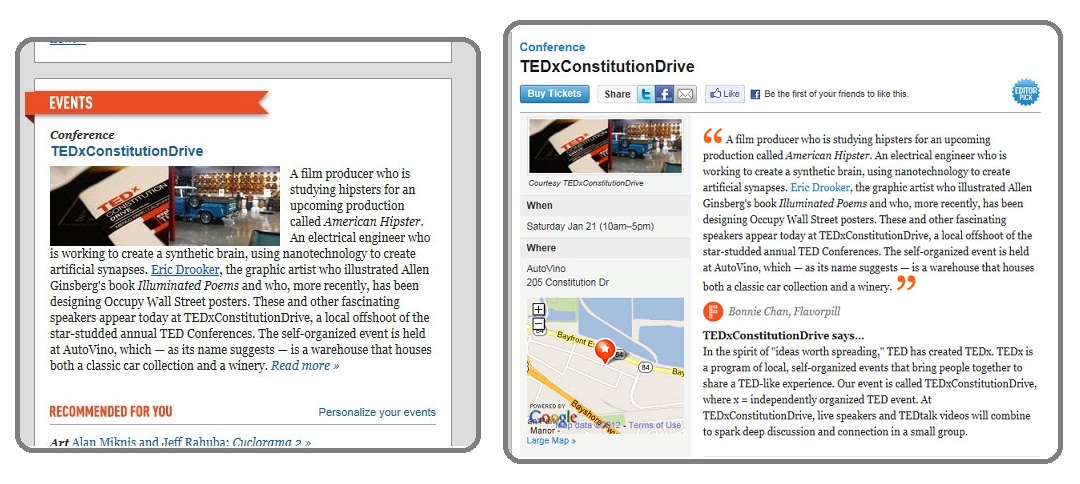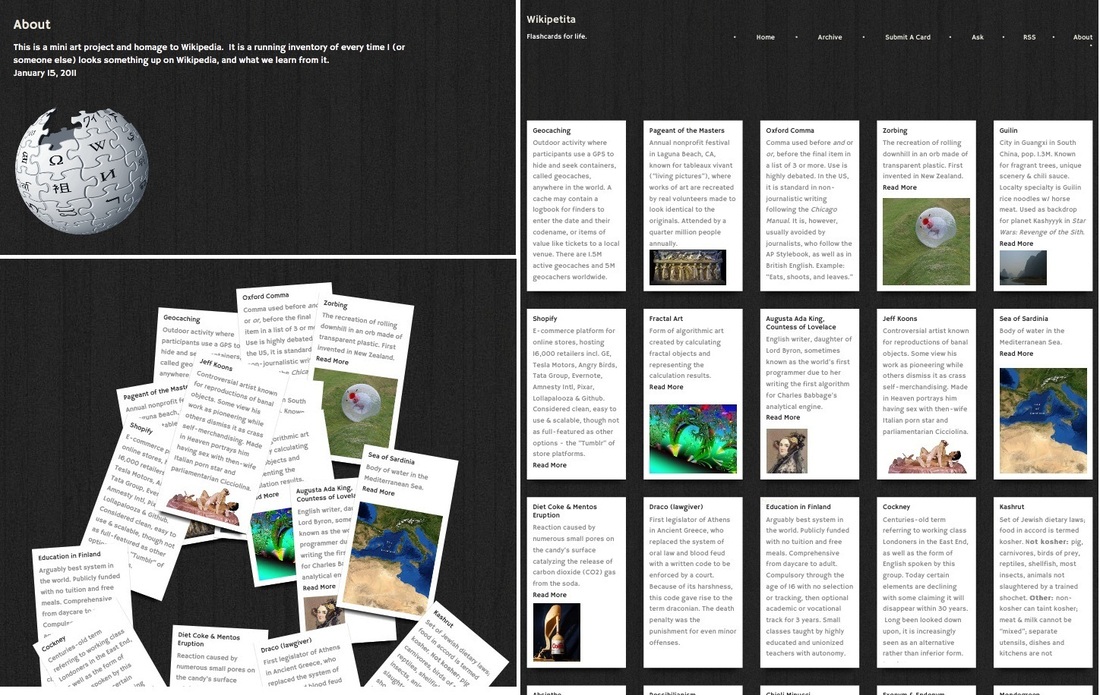It's one of those perspectives, like the best new ideas, that have slowly infiltrated my worldview and how I think about identity.
Have you ever found yourself in slipping into one of these two situations:
- Where you find yourself mentally scoffing at someone that obviously doesn't know the rules of engagement, in the workplace or on Facebook, e.g. by "over-sharing" (TMI or Too Much Information is, if you're interested, a term that appears to date from 2002, a full decade ago).
- Where you tag someone with a title, a phrase, an anecdote, and it makes them less than whole and human in the eyes of both you and the others around you, e.g. "douchebag", "asshole", "weird dude", "psycho", "sleazy", "not that smart", or the host of "remember whens" that attach that individual to circumstances long past.
Empathy has been getting a lot of play in books and media, but the thing is, while empathy gets conflated with compassion, they're actually very different. Empathy is about stepping into the shoes of someone else, understanding them in a way that comes from the gut, to the point that you might not respond in a way that is necessarily kind. It's about understanding poverty so well that you can encompass the resilience and joy that can surface in the midst of slums, at the same time your heart goes out to them because you feel the constraints they suffer under, feeling that pang almost physically. It's about being able to smile at the same time you cry for someone who has lost someone, because loss only comes from once-great joy and the remembrance of that joy is worthy of a smile. The extreme end of empathy is love.
To feel that someone else is like you - like you - is the opposite of sociopathy and the beginning of something that, without getting too fruity, verges on the divine. There's something there - to likeness and family and love as bringing someone into your family and being willing to die for those who are like you - I don't have words for it today but there's something there.
When we're short on time and the feeling of security, we shortchange people. We revert to these in-group/out-group exercises, where we bond by excluding others. We feel a secret gladness that we know, that we're in the in-group. We see others as static, while at the same time we are indignant that others don't allow us the space to grow.
Oddly enough, Duleesha's talk was prefaced by an excellent talk by Beau Lewis on "The American Hipster." According to Beau and Adbusters, "Everyone hates hipsters. Especially hipsters." I don't know if Beau would agree with me, but I felt like he and Duleesha were advocating the same thing - the differentiation of people through passion, rather than group lines that were either inherited or otherwise not chosen in any meaningful way. I think Beau would advocate the shift of hipsterism towards embracing passionately who you are specifically, as opposed to who you are not or what group you are in. Whether it's veganism, or liberalism, or libertarianism, or male, or female, or American, or young, or well-read, or well-traveled, or a New Yorker, to me it comes down to what you choose and what you love.
It's a way to escape the evolutionary status rat race, which some consider the driving force in all of our lives, this need to make more money, be more beautiful, feel better than others, find a mate. We have infinite opportunities to be differentiated, especially with what we as individuals are enabled to do today by technology. We can differentiate ourselves through *creation*. We don't need to ascribe to a single dimension of status, and who cares about everyone liking us when, our time being finite, we only get to spend that time with relatively few people. The mad rush for status is an archaic artifact of genes that don't know what century they're living in.
It's hard to be empathetic. You have to carve out space in your life - time to consider, emotional security to quiet the voices in your head, kindness to offer a wedge and way in. But we should take seriously the power we have in this world and over others. Identity is co-constructed by our genetics, our environment, and our wills - and arguably among the most powerful elements is the surrounding social interplay. In the same way that we are affected by others, others are affected by us. If we believe this, and recognize the power there, we should see vulnerability, and the implied risk that is undertaken, as heroic.....and step lightly.



 RSS Feed
RSS Feed